
Aug 1 , 2020
By David A. Brat (PhD) , Yonas Biru (PhD)
David A. Brat (PhD) is the dean of the Liberty University School of Business, a former Republican member of the US Congress and a consultant to the World Bank. He can be reached at dave@davebrat.com. Yonas Biru (PhD) is the former deputy global manager of the International Comparison Programme at the World Bank and founder and chair of the Nile Club. He can be reached at biruyonas@yahoo.com.
The story of Africa is a study in contradiction. For some, the continent is poised to capitalise on the fourth industrial revolution, owing to its enormous natural resources and increasingly growing educated population. For others, it is a continent pregnant with the twin seeds of threat to the West: a potential recruitment dreamland for global terrorist organisations and China’s pawn and fodder for world domination.
Sub-Saharan Africa (heretofore Africa) is the “fastest urbanising region of the world,” Wade Shepard took note in the October 3, 2019, issue of Forbes Magazine, and one of “the final frontiers of the fourth industrial revolution.”
Apart from its fast-growing markets, Africa is home to half of the world’s known supply of rare earth minerals essential to building products from batteries to aeroplane engines and from household electronic devices to laser-guided missiles. No country has responded to Africa’s beckoning opportunities for riches “quite like China,” Shepard stated, suggesting the West has lost the initial geopolitical battle over the continent’s increasingly promising markets and rare earth minerals.
There are “two ominous signs about Africa,” as was written in this paper in the opinion piece headlined, “Marshal Plan for Africa Now or Doom by 2050,” published on December 28, 2019 [Vol. 20, No. 1026]. There is population explosion and then its perennial poverty. Whether it is natural disaster, pandemic or economic recession triggered by internal or external shocks, Africa depends on external bailout and handout, with no abatement in sight.
In 1960, the region accounted for a mere seven percent of world population. In 2018, the figure doubled, and the UN projection for 2050 is 23pc.
Between 1960 and 2018, Africa's GDP growth rate was 3.5pc. By comparison, East Asia (excluding high-income countries) grew at just above seven percent. During the same period, South Asia’s GDP registered a growth rate of 5.1pc. Notable also is that over the last six decades, the population growth rates for East and South Asia showed notable declines, while their respective economies registered staggering increases. By comparison, Africa’s relatively high population growth and low GDP growth remained virtually unchanged.
A ticking time bomb is embedded in Africa’s demographic structure, where 43pc of the total population is under 14 years of age. In 15 years, this demography will be in the 15 to 30 age group, swelling the explosive ranks of the unemployed and creating ground zero for terrorist recruitment, not to mention an exodus of refugees of biblical proportion. In this resides a vector of threat to global order and security that requires fundamental reforms.
Thus, let us forget about Africa’s opportunities and instead focus first on saving Africa and the world at large from Africa’s certain future pain and threats. The West has a vested interest in launching a Marshall Plan for Africa, because the alternative is a metastasising cancer of poverty, political instability and breakdown of the global security order.
That Africa has become a battleground for China and the West is not surprising. The problem is that competition between the two geopolitical juggernauts, not to forget the Gulf countries and Russia, is not serving the best interest of Africa, because China is primarily driven by political objectives that contravene Africa’s economic and governance interests.
China has been increasingly controlling the riches of Africa to the point of monopoly as part of its strategic world domination, while the West has been unfailingly picking up the bills in the fight against the continent’s poverty and social crisis, be it a natural disaster, famine or pandemics.
Take, for example, China’s contribution during the 2014 Ebola crisis. It was a paltry 47 million dollars, just 1.3pc of the total global support, according to the Office for the Coordination of Humanitarian Affairs. Compare this to the United States' 1.8 billion dollars, almost half of the total, or the UK's 364 million dollars.
During the current Novel Coronavirus (COVID-19) pandemic, China was the only member of the G-20 countries that was reluctant to unconditionally suspend Africa’s international debt payment obligations until the end of 2020. Though it finally signed with the G-20 countries, its initial reluctance to bear its fair share of global obligation was inexplicable, considering that it is the source of the pandemic.
China is also by far Africa’s largest economic partner with an estimated one million of its citizens currently living and working in Africa in over 10,000 Chinese business enterprises, according to McKinsey & Company.
A cursory look at China’s engagement in Africa shows its loans to many African countries are collateralised with strategic seaports, flagship national airports and revenues from natural resources such as oil or rare earth minerals. A closer look reveals two disturbing factors governing China’s business model and the space it operates in.
Of the 50 most indebted countries to China, 25 are from Africa. Of these, 23 are among the worst half of Transparency International’s corruption ranking, including six of the 10 most corrupt nations in the world, excluding countries in civil war. In addition, of the 50 heavily indebted countries to China, a large majority of them are historically prone to debt crisis. Since 2013, nearly half its new loans were to nations with high risk of default.
China sees African nations’ economic hardships and the resultant risk of defaulting on their loans as an opportunity to lay claims over strategic collateralised national assets – a behaviour that many analysts have called attention to. Newspaper headlines such as “Kenya Risks Losing Port to China” and “China to Take over Zambian International Airport for Debt Repayment Default; Neocolonialism?” have become common.
A West-sponsored Marshall Plan is imperative to change the geopolitical calculus and compel China to behave differently.
But how can the Marshall Plan be implemented?
Most people do not realise it, but a Marshall Plan for Africa is already underway under the Trump administration as part of the President’s national security strategy that is anchored on three pillars.
The first is “lasting stability, prosperity, independence and security on the African continent” that requires curbing China’s and Russia’s “rapidly expanding financial and political influence across Africa." The second is “countering the threat from radical Islamic terrorism." The last is “ensuring that US taxpayer dollars for aid are used efficiently and effectively.”
The US Better Utilisation of Investments Leading to Development (BUILD) Act that President Trump signed into law in 2018 represents a paradigm shift in the centre of gravity of Africa’s economic development from government-sponsored to private sector-led economic growth and job creation.
It has also fundamentally altered the international development aid modality. The strategic objective of the new international aid model is to leverage billions that the US and European government provide for Africa as the impetus for multilateral corporations to invest in the continent.
The BUILD is bound to reconfigure the contours of the international development space in two ways. Primarily, the geopolitical realities of the past that were aimed at expanding global political influence will give way to a new paradigm of economic expansion, driven by multinational corporations. This means US corporations will be competing not only with China but also with those from Europe.
The other impact of BUILD will be that World Bank and African Development Bank-led government budget support programmes will lose their muster, leaving them little room but to reinvent themselves.
Both developments will encourage economic competition and force China to change its predatory business model in Africa.
Who will pay for the Marshall Plan?
Western taxpayers need not bear the burden of the Marshall Plan. A significant part of the cost of the Marshall Plan can be mobilised by stopping the illicit transfer of resources out of Africa. Every year, more resources leave Africa illicitly than Africa receives from the rest of the world in development aid and foreign direct investment.
The UN estimated as much as 1.4 trillion dollars might have been illicitly siphoned out of Africa between 1980 and 2008. Illicit transmission of such a huge amount is possible, because multilateral corporations and international banks are facilitating the crime under the rubric of international business. Stopping this requires action not only from African governments but also from Western ones.
The West can also support the Marshall Plan by shifting its supply chains to Africa. An important factor is conspiring against China’s position as the global hub for manufacturing supply chains. First, China’s manufacturing is embedded in American and European supply chains past the point that puts their national interests and security in jeopardy.
President Donald Trump is “turbocharging” a process to “rip global supply chains from China,” as Reuters reported. India’s Prime Minister Modi did not waste time to chart a bold and aggressive road map to “rise to the occasion” and make India “the global nerve centre of multinational supply chains in the post-Covid-19 world.”
Africa needs to compete for the opportunity. The continent has an increasingly educated labour force with relatively cheap labour, making it a fertile ground to be an industrial manufacturing hub. The US and European-sponsored Marshall Plan is the only viable option to help Africa become a global manufacturing base. The latter is considering tax breaks to companies to pull supply chains from China. Such companies can be encouraged through enhanced tax incentives and investment guarantees to move their supply chains to Africa.
Another source of funds is the African diaspora. This can be facilitated by African governments through well-developed incentive structures to attract diaspora mutual funds and venture capital, which Western countries can encourage by relaxing stringent international investment regulations.
Countries such as Ethiopia receive over four billion dollars annually through remittance. This figure can be increased by several fold if the US passes a bill to waive strict regulations governing diaspora mutual funds and venture capital.
The stars are aligned for an African Marshall Plan, and Ethiopia is best situated as a pilot country. Ethiopia, led by Nobel Laureate Prime Minister Abiy Ahmed, has received substantial financial support from the US under President Trump. The North American country’s support is consistent with an early phase of a Marshall Plan. The US International Development Finance Corporation, an independent agency of the US government, recently announced a decision to invest five billion dollars in Ethiopia in a span of three to five years.
The Board of Directors of the US Millennium Challenge Corporation have also selected Ethiopia for its threshold programme, which conducts rigorous economic analysis to identify constraints and hurdles to private investment. In addition, just last week, the US Agency for International Development (USAID) signed a new development partnership agreement with the Ethiopian government worth more than 230 million dollars.
The focus on Ethiopia is strategic on many levels. In terms of geopolitics, it is the most strategic nation in Africa, owing to its proximity to the Red Sea, a vital corridor for global energy security and a shipping route for intercontinental trade.
Another important factor is that the Ethiopian Prime Minister has won accolades both in the US and across the globe as a continental agent of change.
“An object of fascination around the continent,” the young leader was portrayed by the Financial Times. “Success could ignite economic change through emulation equivalent to South Korea’s influence on Asia in the 1970s.”
PUBLISHED ON
Aug 01,2020 [ VOL
21 , NO
1057]
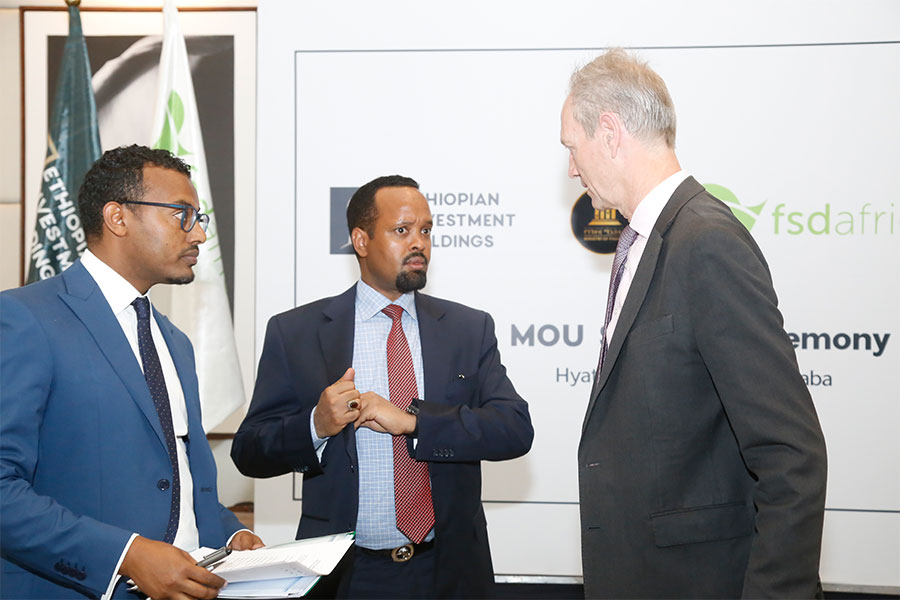
Fortune News | May 21,2022

Viewpoints | Oct 12,2024

Viewpoints | Jun 29,2019
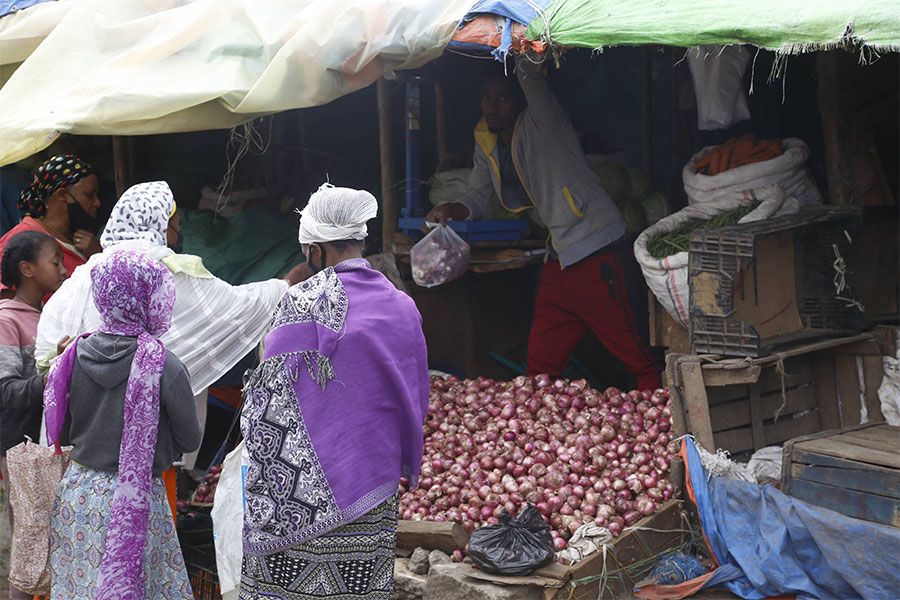
Agenda | Sep 26,2021

Commentaries | Mar 21,2020

Sunday with Eden | Dec 19,2021
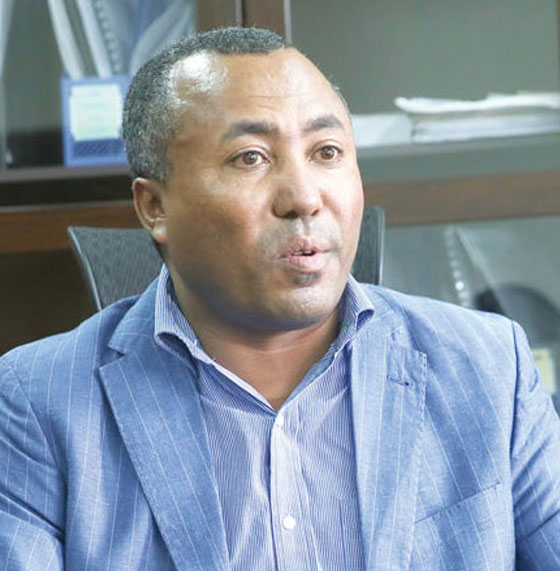
Radar | Aug 07,2021

My Opinion | Dec 19,2021
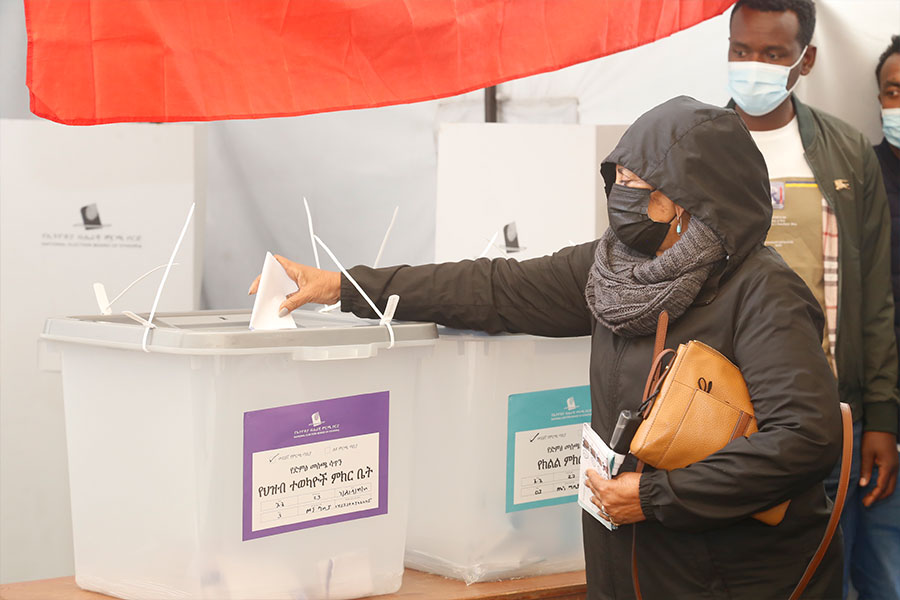
Featured | Sep 26,2021
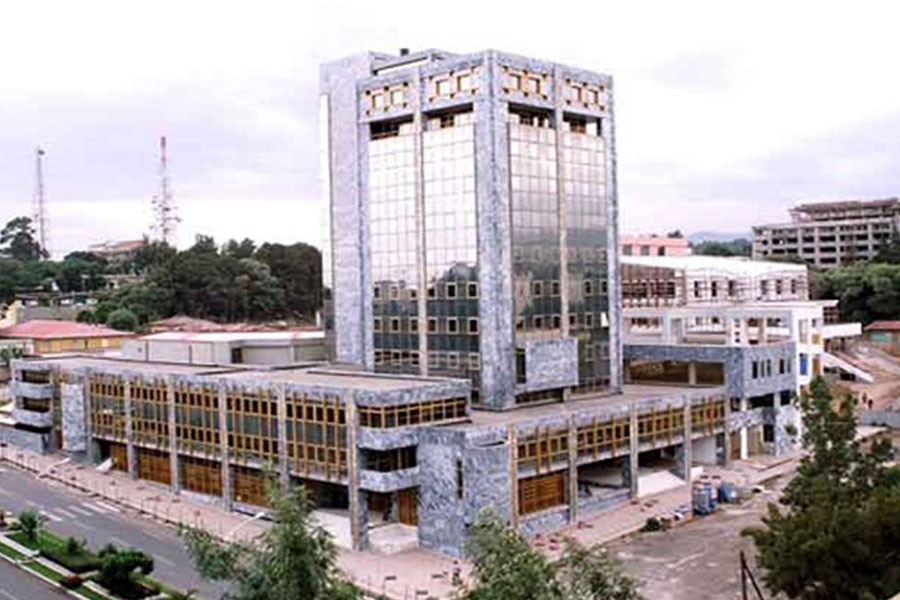
Year In Review | Sep 10,2021

My Opinion | 131674 Views | Aug 14,2021

My Opinion | 128040 Views | Aug 21,2021

My Opinion | 126002 Views | Sep 10,2021

My Opinion | 123625 Views | Aug 07,2021

Dec 22 , 2024 . By TIZITA SHEWAFERAW
Charged with transforming colossal state-owned enterprises into modern and competitiv...

Aug 18 , 2024 . By AKSAH ITALO
Although predictable Yonas Zerihun's job in the ride-hailing service is not immune to...

Jul 28 , 2024 . By TIZITA SHEWAFERAW
Unhabitual, perhaps too many, Samuel Gebreyohannes, 38, used to occasionally enjoy a couple of beers at breakfast. However, he recently swit...

Jul 13 , 2024 . By AKSAH ITALO
Investors who rely on tractors, trucks, and field vehicles for commuting, transporting commodities, and f...

Jun 28 , 2025
Meseret Damtie, the assertive auditor general, has never been shy about naming names...

Jun 21 , 2025
A well-worn adage says, “Budget is not destiny, but it is direction.” Examining t...

Jun 14 , 2025
Yet again, the Horn of Africa is bracing for trouble. A region already frayed by wars...

Jun 7 , 2025
Few promises shine brighter in Addis Abeba than the pledge of a roof for every family...

Jun 29 , 2025
Addis Abeba's first rains have coincided with a sweeping rise in private school tuition, prompting the city's education...

Jun 29 , 2025 . By BEZAWIT HULUAGER
Central Bank Governor Mamo Mihretu claimed a bold reconfiguration of monetary policy...

Jun 29 , 2025 . By BEZAWIT HULUAGER
The federal government is betting on a sweeping overhaul of the driver licensing regi...

Jun 29 , 2025 . By NAHOM AYELE
Gadaa Bank has listed 1.2 million shares on the Ethiopian Securities Exchange (ESX),...